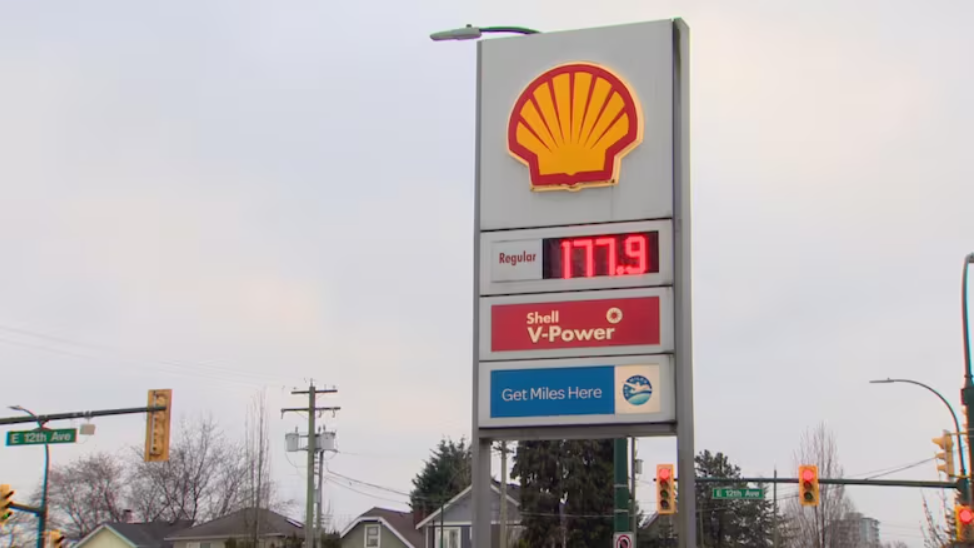Gas Prices Drop Across B.C. After Carbon Tax Repeal, But Concerns Rise Over Climate and Budget Gaps
Liam O'Connell
4/2/20252 min read


Gas prices across British Columbia fell sharply Tuesday morning, hours after the province repealed its longstanding consumer carbon tax during an overnight legislative session.
Premier David Eby said drivers could expect to save about 17 cents per litre, and by mid-morning, online trackers like Gas Buddy and Gas Wizard showed that prediction had come true. Prices ranged from $1.32 a litre in Penticton to $1.77 in North Vancouver.
Home heating costs are also expected to drop. FortisBC says natural gas bills will fall by 23 per cent — around $30 a month for the average household.
End of an era
The move ends B.C.'s 17-year-old consumer carbon tax, a policy once hailed as a pioneering tool for reducing emissions. First introduced in 2008 by the B.C. Liberals, the tax weathered changes in government and was, for years, seen as a model for pricing pollution.
But Eby said the policy had become "toxic" among the public, and his government moved swiftly to repeal it after the federal government offered a waiver. The bill passed just after 1:30 a.m. Tuesday following a late-night legislative session.
“I support the policy. I thought it was a good policy. I fought for the policy,” said Eby. “But British Columbians don’t support it anymore — and we’re listening.”
Notably, the original "axe the tax" slogan was coined by the B.C. NDP themselves when they were in opposition in 2008 — a point not lost on critics and political observers.
Industry response and market impacts
Some drivers reported gas prices spiking in the days before the repeal, leading to concerns about price manipulation. Eby warned oil and gas companies not to “play games,” pointing to existing rules requiring price transparency with the B.C. Utilities Commission (BCUC).
BCUC chair Mark Jaccard said seasonal factors and a recent refinery fire in northern California are also influencing prices.
“Prices always rise in spring as refineries switch to summer blends,” Jaccard told CBC Radio. “But we’ll be watching closely to ensure companies pass on the savings from the tax repeal.”
Climate policy in question
While consumers may be celebrating at the pumps, environmental advocates and economists are sounding the alarm about the long-term implications.
UBC Okanagan economist Ross Hickey called the move “foolish.”
“It’s a great tax that helps both the environment and low-income households,” Hickey said. “Now we’re scrapping it over a political slogan? Honestly, it’s pathetic.”
The tax’s elimination is also expected to blow a $1.8 billion hole in B.C.'s annual budget. The government has hinted that spending cuts — potentially including the popular electric vehicle rebate — may be on the table to compensate.
What’s next?
Eby insists B.C. will continue to be a leader on climate, promising future investments in clean technology and a focus on regulating industrial polluters. But those plans remain vague.
B.C. Green Leader Jeremy Valeriote said the government hasn’t yet explained how it will replace the climate action tax credit, which provided meaningful quarterly rebates to lower-income residents.
“This tax supported both our environmental goals and the most vulnerable British Columbians,” Valeriote said. “Getting rid of it without a clear replacement plan is deeply irresponsible.”
B.C. Conservatives, who have campaigned aggressively against the tax, focused their criticism on the rushed timeline and urged the government not to introduce any similar industrial carbon pricing mechanisms.
With the federal carbon backstop still in place elsewhere, B.C.’s move makes it the first jurisdiction in North America to dismantle a major consumer carbon tax — and the spotlight is now firmly on what, if anything, will replace it.
News
Stay updated with the latest BC news stories, subscribe to our newsletter today.
SUBSCRIBE
© 2025 Innovatory Labs Inc.. All rights reserved.
LINKS
